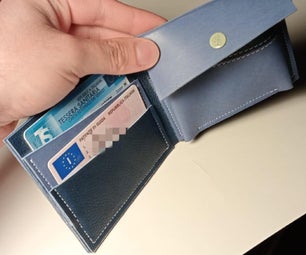Introduction: Rage Rug- Express Your Anger With a Punch Needle
Projects involving embroidery or needle punching require certain amount of patience and focus. They are good for relaxing, perfect for occupying your hands while listening to an audiobook or music.
But have you ever wanted to just stab something violently while blasting Rammstein? Just grab that needle, and create something to reflect your inner turmoil? If so, then this project is for you.
Rage-needling can help you de-stress after work, occupy your hands to prevent you from smoking or snacking or help distract you from pain...I can attest to that last one, I started making rage rugs after a botched wisdom tooth extraction and subsequent, week long agony. It was either put my head through the wall or use all that anger and pain and do something creative with my hands.
Supplies
You will need:
- Adjustable punch needle
- Selection of yarn (I'm using acrylic)
- Monk cloth
- Wooden frame
- Staple gun
- Strong adhesive
- Felt fabric for the backing of the rug
- Optional- glue gun, disposable gloves
Step 1: Wooden Frame and Monk Cloth
You can use a large embroidery hoop or a wooden picture frame, however, for bigger projects you will need to make a wooden frame. It doesn't have to be pretty, nor do you need any carpentry skills. Buy some wooden planks (5-6cm wide, 10-20mm thick), cut them and use screws or brackets to assemble a frame. Size depends on your project as well as the size of the monk cloth. You want the monk cloth to be a little bigger than the frame.
Once the frame has been assembled, stretch the monk cloth over the frame and tack it in place with a staple gun. Don't be stingy with your staples, you want the cloth to be stretched taut and secured to the frame.
Step 2: Pattern
Choose your pattern. Either free-hand it with a marker like I did, or print something out and transfer the image onto the cloth. For this project I recommend something simple though.
Step 3: Feed the Needle
Punch needles come with thin, long metal wires that are used to thread the yarn. Thread it through the needle and leave about 2 inches of yarn to hang freely from the tip.
Step 4: Needle Punching
To begin, punch the needle through the cloth to the hilt and leave it in. Reach under the frame and pull the yarn end through the cloth. You will have to remember to do this every time you switch yarn colours.
Take some time and play with the needle. Use the edges of your frame that are free of the design to experiment and- if your needle is adjustable- figure out which needle size and length to use. The longer the needle, the longer the rug's fibres will be and it will also be more fluffy.
Very important: throughout the project you will have to stop every few minutes to uncoil the yarn and let it pool freely. If the yarn has no slack, you won't be able to make stitches.
Step 5: Go Slow Around the Edges
Needle punching is not difficult, just keep slowly punching the needle into the cloth. Since this project is not about precision, but about creative rage, go slow around the edges of the design and...
Step 6: ...
... let yourself go while filling the pattern.
Step 7:
As long as you plunge the needle all the way to the hilt and don't lift the needle up too much while needle-raging, you will do just fine. Your rug might have some uneven areas, but you can always go back and fill any sparse places.
Step 8: Positions
You can go vertical or horizontal, upright or reclining, on the bed, at the table, on the floor... just don't jab yourself by accident.
Step 9: Finished Pattern and Glue
When your pattern is finished, it's time to add some glue to the back. If you went needle crazy, the back of the rug is probably a mess, so to keep all that wool together, it's best to add some strong adhesive. I applied mine with a spatula and let it dry for 2 hours until no longer tacky.
Step 10: Folding the Edges
I cut the rug out of the frame, but I left approximately 1 inch extra cloth around the edges. That extra cloth has to be cut every few centimetres, so it can be folded over the back and glued in place (same adhesive as before). Then the whole thing is left to dry for a few hours.
Step 11: Felt Backing
Use felt or anti-slip material as backing. I used the same glue as before, but you can use glue gun or spray glue instead.
Glue the felt to the back of the rug and let it dry before trimming the overhang.
*I run out of felt, so I improvised with cotton fabric, but it will have to be replaced with felt later.
Step 12: Clean Up
Use sharp scissors to cut away any bits of loose yarn.
Step 13: Finished

Second Prize in the
Fiber Arts Challenge














2 Comments
1 year ago
Ha! I love this. Does look therapeutic :D
1 year ago
You did this by hand! Whoa, impressive :D